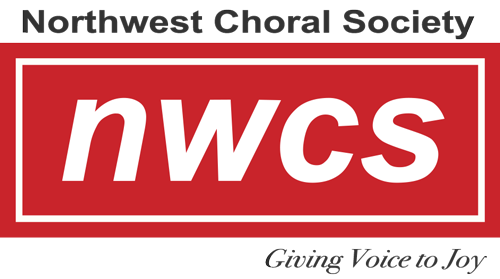For millennia, human beings have been fascinated by the heavens. The vastness of the night sky reminds us of our place in the universe, our smallness. And yet, we have typically found it difficult to cope with this relative smallness, inventing stories of gods and giants and fantastic creatures commemorated in constellations, in an attempt to explain the heavens, and thus, in a way, to control them.
In “Starlight,” a new commission for the Northwest Choral Society, composer Thomas LaVoy sets a text that speaks to this compulsion. The speaker of the poem by John Collings Squire, gazing up at the night sky, thinks that if he can just “learn and hold” the stars, he will “master, yoke, and scorn” the mysteries of the universe. This theme repeats again and again throughout the concert; humans try, by knowing facts and names and chemical compositions, to feel some ownership over the heavens above us. And yet, like the speaker in Squire’s poem, we are constantly awed by the vastness and power of the universe, gazing up at the sky “with lips apart.”
This program is structured to reflect that struggle. In the first half of the concert, the pieces are decidedly “terrestrial,” their messages about the ways in which the heavens above mirror life here on earth. Timothy Takach’s We Are Lost, We Are Lucky speaks of building a fire and watching the sparks dart, like “earthly constellations,” as the vocal lines drift in and around each other like tongues of fire. Later, Daniel Elder uses the moon to inspire dreamy visions of a loved one, and Morten Lauridsen’s ethereal Sure On This Shining Night brings peace to all who stand in the glow of the stars. The first half ends with Vincente Chavarria’s groovy and syncopated arrangement of Follow the Drinking Gourd, an African-American folksong commemorating the journey of escaping slaves from plantations to freedom across the Ohio River. At the end of this piece, the voices drift apart and fade out, vanishing into the night.
The second half of the program turns its gaze skyward, allowing the viewer to admire the heavens for what they are, without trying to own or master them. LaVoy’s second piece on the program, Orbits, makes use of shifting textures between the voices to tell the story of two stars meeting in the sky. Franz Josef Haydn’s magnificent chorus The Heavens are Telling from The Creation praises God for creating the firmament in all its glory. As the program continues, the music becomes more humble and mysterious, from the shifting tonalities in Kathleen Allan’s Stars, to the crystalline, ethereal sounds in Esenvalds’s Stars. The opening motif from Eugene Butler’s I Cannot Count the Stars comes from the 1937 song Harbor Lights, and here evokes a sense of nostalgia – as if the speaker has long been trying to understand the mysteries of the universe, and has now given up, content simply to be part of it all. The final piece on the program, Lights Upon Our Souls, settles finally upon an answer to all this questioning: “The sun gives light to feed the earth. The soul gives love to feed the light.” Only by reflecting the beauty we see in the heavens above us can we achieve peace and understanding here on earth.
By Carling FitzSimmons
